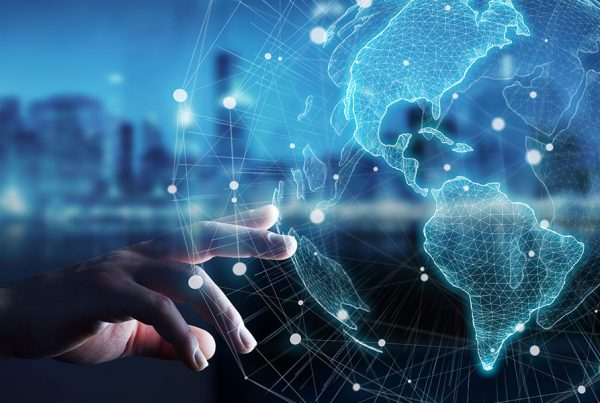Humanitarians always had the difficult mission to face highly sensitive and urgent issues directly affecting populations, doing no harm. Over the last decades, the HPD nexus has been confronted by even more complex and intricate challenges whilst facing critics on the efficiency of international aid and having to adapt to an international agenda influenced by earmarked contributions.
The challenge for the HPD community has been to improve people’s lives resolving new political and humanitarian crises, increased inequalities and natural disasters, preserving and fighting for human rights whilst delivering better, more efficiently, with a greater impact and being innovative enough without jeopardizing people’s lives, thus indirectly the legitimacy and credibility of their actions and organizations.
Despite the race for innovation being largely led by tech companies, international public actors have proven to be adaptive, resilient and to engage in a profound transformation of their strategies and action plans, and their internal organization.
In that respect, Artificial intelligence (AI) and frontier technologies have helped international actors to deliver better. They also supported them in working smarter and collaborating better. Lastly, they call for a new type of leadership.
Delivering Better
AI and frontier technologies have proven to be key enablers to turn information into insights and deliver in a more impactful way with services, such as:
- Cash-based interventions using blockchain technology, supporting the most vulnerable by responding to their pressing needs, giving them the power of choice in their spending and protecting their privacy and data.
- Satellite imagery mapping situations and/or extracting relevant information to make more informed decisions.
- AI systems like chatbots to provide assistance at distance e.g., UNHCR psychological assistance to refugees, tracing programs to find missing persons among the displaced population, predictive analytics to anticipate the next crisis and natural disaster to be better prepare and quicker in responding. For the first-time in 2020, the Central Emergency Response Fund allocated funds for famine and flooding in Somalia and Bangladesh using such predictive models.
If data has given more visibility on the root causes and symptoms, the HPD community has also reached a consensus on the common risks of such technologies, and therefore the ethical safeguards needed to have ethical and responsible innovation:
- Building a sound data ecosystem with data privacy and security protocols guaranteeing beneficiaries’ rights. Worth noting that the right to be forgotten might be jeopardized with the increased triangulation of information and that the consent of beneficiaries might not always be possible due to the context, the level of data illiteracy, the fear of not receiving assistance…
- Designing and testing AI applications adopting a mandate-driven and beneficiary-centered approach through an iterative process, lots of testing knowing that unfortunately it is not always possible to test on the targeted population nor to adapt to the cultural setting, which might lead to do more harm. Policy, law and governance approaches should be incorporated in the design process.
- Respecting international, human rights and humanitarian laws.
Working smarter and cooperating better
The impact of artificial intelligence and frontier technologies has been recognized by multilateral organizations with digitalization strategies and policies to respond to a higher demand of donors for both results and integrated approaches with the view of optimizing the deployment of international aid and assistance. For instance, the UNCHR and the WFP have developed an IT programme maximizing food assistance for refugees.
Similarly, those organizations and civil society have invested in AI tools to maximize their internal efficiency for tasks that could be easily automated. For example, UNICEF has invested in bots to automatically extend contracts and process a large number of invoices with an average of 100 a day and with estimated savings of the equivalent of two full-time members of staff. HR recruiting tools are also commonly used. These tools contain some features or key terms to attract a targeted group of professionals, thus reducing the resume scanning process. At the same time, there is a risk of discrimination or overlooking talents.
If overheads can be reduced and processes optimized, the level of investment remains high for NGOs. AI applications require investment for the design, the deployment, the scale up, capacity building and updates. The latter create recurring charges that can mitigate the savings made. In addition, if an organization decides to uninstall such systems, the costs can be high. Larger or international structures can smooth the investment by playing on economies of scale, which might be more difficult for smaller organizations.
Lead and manage with a strategic vision and humanitarian values
As for every transformation, AI and new technologies are both an opportunity and a risk.
For the HPD nexus, these technologies come with new leadership and management challenges that, if harnessed, will enable us to stop working in silos while reinforcing the strategic positioning of each actor. If not, it will become more difficult to uphold our core values. For instance, how to respect the humanitarian principles especially those of independence and impartiality when the data or the predictions point to another direction to that where the aid is needed?
It also requires having leaders and managers with strategic thinking and a cross-functional vision enabling them to go up and down the ladder of abstraction, being able to see the big picture and the operational implications. In that sense, it is an interesting time for new profiles able to work at the intersect of fields and being able to deploy a vision.
A smarter society is not (just) a more connected society. It is a society that upholds humanistic and humanitarian values in doing no harm, including everyone, treating everyone equally and fairly while respecting and valuing cultural diversity. Renewing our commitment to humanitarian values and our commitment to improve people’s lives might be the best opportunity that AI and frontier technologies provide us with, as long as we decide to seize it.



